43 nutritional labels on food are based on a diet of
Nutrition Chapter 3 Flashcards | Quizlet They are based on a 2000-kcal diet. Which of the following are appropriate food intake recommendations for women who are pregnant or breastfeeding? Consume 8 to 12 ounces of seafood per week from a variety of seafood types. Do not eat tilefish, shark, swordfish, and king mackerel because they may contain high amounts of methylmercury. Food Labels | Nutrition.gov The U.S. Food and Drug Administration (FDA) has updated the Nutrition Facts label on packaged foods and beverages with a fresh design that will make it easier for you to make informed food choices that contribute to lifelong healthy eating habits. What's in a Name? What Every Consumer Should Know About Foods and Flavors
Use of the Term Healthy on Food Labeling | FDA The existing definition has limits for total fat, saturated fat, cholesterol and sodium and to qualify, foods must also provide at least 10% of the Daily Value (DV) for one or more of the following...
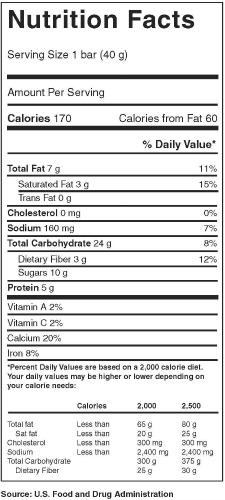
Nutritional labels on food are based on a diet of
Food Label Claims: What You Can and Can't Trust - WebMD Multiply the serving size by the number of servings in the package to find out the total calories and nutrients. Percent Daily Value (%DV). This number is based on a 2,000-calorie diet. The %DV... Food label reading guide | Nutrition Australia Food and drink labels will include information about the product, where and when it was made and a statement of ingredients, as well as any warnings or allergen statements. Most food or drink packages have a Nutrition Information Panel (NIP) which tells you the quantity of various nutrients a product contains per serve and per 100g or 100 ml. Consumer Research on Labeling, Nutrition, Diet, and Health CONCLUSIONS: Based on self-reported data, the findings suggest that including switching to lower calorie foods and exercise in weight management, as recommended by the Dietary Guidelines for...
Nutritional labels on food are based on a diet of. 310 Nutrition | Diet, Weight Loss, and Meal Replacement Shakes Exercise and proper diet are necessary to achieve and maintain healthy weight loss. For questions regarding use of any meal replacement product or supplement, consult your physician. In addition, always consult your physician before beginning any weight loss program because a change in diet or exercise may affect certain medical conditions or ... Nutrition Ch. 2 Flashcards | Quizlet By law, which of the following must be listed on the Nutrition Facts panel on food labels? calories, total fat, and saturated fat A person can increase his or her consumption of nutrient-dense food by: all options are correct eating more fruits, vegetables, and whole grains eating more lean dairy and protein foods Learn How the Nutrition Facts Label Can Help You Improve Your Health Nutrients Required on Label Vitamin D and potassium values are required. Calcium and iron will continue to be required. Vitamins A and C will no longer be required but can be included on a voluntary basis. Slight Decrease in Sodium Allowance The daily limit for sodium decreased slightly from 2,400 mg per day to 2,300 mg per day. Learn How to Read a Nutrition Label - MamaSezz These products are most definitely not whole food plant-based. Look for minimal ingredients and for ingredients that you recognize as real, whole food. 2. Sodium The American Heart Association recommends 2,300 mg of sodium a day (and they say 1,500 mg is even better). Some studies suggests we need as little as 125 mg a day.
Your Guide to the New Food Label | National Kidney Foundation The Nutrition Facts Label helps you understand the nutrients a food product contains, and the Nutrition Facts Table lists all the items required by the law. Food labels have percent daily values listed for a set group of nutrients based on the Food and Drug Administration (FDA) recommended 2000 calorie diet. How To Read Food and Beverage Labels - National Institute on Aging At the top of the Nutrition Facts label, you will find the total number of servings in the container and the food or beverage's serving size. The serving size on the label is based on the amount of food that people may typically eat at one time and is not a recommendation of how much to eat. Read more about serving and portion sizes. 2 History of Nutrition Labeling - NCBI Bookshelf when finalized in 1973, these regulations specified that when nutrition labeling was present on labels of fda-regulated foods, it was to include the number of calories; the grams of protein, carbohydrate, and fat; and the percent of the u.s. recommended daily allowance (u.s. rda) of protein, vitamins a and c, thiamin, riboflavin, niacin, calcium, … The Nutrition Facts Label: Its History, Purpose and Updates The U.S. Nutrition Facts label first appeared in 1994 and was revised in 2016. A newer, more updated version is required on products as of January 1, 2020. There is a new line on the Nutrition Facts label for added sugars—the first new line on the label since trans fat was added in 2006. Serving sizes were established in 1993 and updated in 2016.
Ch. 2 Reading Notes (Nutrition) Flashcards | Quizlet -- The Nutrition Facts panel on food labels, which contains the Daily Values, and which can help you decide which foods to buy. ... Because the DVs on the food label are based on a 2,000-calorie diet, if you need more or fewer than 2,000 calories daily, some of your DV numbers may be higher or lower than those listed on the Nutrition Facts ... Nutrition Labeling - The Sugar Association The first Nutrition Facts Label was introduced in 1994 following the Nutrition Labeling and Education Act of 1990, which made including nutrition facts information on packaged food law. ... Percent Daily Value: Shown as a general rule, the percent daily value tells you how much a nutrient in a serving of food contributes to a daily diet, based ... Food Labels | CDC - Centers for Disease Control and Prevention If you eat the whole thing, you are eating 8 times the amount of calories, carbs, fat, etc., shown on the label. Total Carbohydrate shows you types of carbs in the food, including sugar and fiber. Choose foods with more fiber, vitamins, and minerals. Choose foods with lower calories, saturated fat, sodium, and added sugars. Avoid trans fat. How to Understand and Use the Nutrition Facts Label | FDA Dietary fiber, vitamin D, calcium, iron ad potassium are nutrients on the label that Americans generally do not get the recommended amount of. They are identified as nutrients to get more of....
Food Labels: Fat & Cholesterol | Home & Garden Information Center Two important parts of a food label are the "Nutrition Facts" panel, which contains nutrition information, and the ingredients list. In addition, some labels contain a nutrient claim, such as "low-fat" or "fat-free." ... These percentages are based on a 2,000-calorie daily diet, which is average for someone who is moderately active ...
The Effects of Nutrition Knowledge on Food Label Use: A Review of the ... diet-disease, nutrition principles, food nutrient density: 11: Blaylock et al., 1999 ... Barreiro-Hurle et al. (2008) examined food choice based on food label characteristics including nutrition labels and claims. They found that nutrition knowledge was higher among those who primarily used nutrition labels, relative to those who used claims ...
The New Nutrition Facts Label | FDA The U.S. Food and Drug Administration (FDA) has updated the Nutrition Facts label on packaged foods and drinks. FDA is requiring changes to the Nutrition Facts label based on updated scientific...
Nutrition Chapter 3 Flashcards | Quizlet Which of the following are true facts about the percentages of Daily Values when applied to the nutrition Facts food label? ... They are based on a 2000-Kcalorie diet The 2000-Kcalorie diet allows easy comparison among similar foods. Traditional Asian foods generally feature large amount of _____.
Understanding Food Labels | The Nutrition Source | Harvard T.H. Chan ... Under the Food Allergen Labeling and Consumer Protection Act of 2004, eight major food allergens—milk, fish, tree nuts, peanuts, shellfish, wheat, eggs, and soybeans—are required to be listed in a "contains" statement near the Ingredients list if present in a food. An example would be "contains wheat, milk, and soy."
'Healthy' Or 'Diet' Foods You Should Probably Stop Eating To sum it up: you shouldn't trust food labels blindly. And ultimately, relying on portion control may be a better solution than choosing foods labeled "diet" or "healthy." "You're better off choosing a variety of nutrient dense foods and keeping portions in check when it comes to high-calorie foods," says Amber Pankonin, MS, RD ...
The 10 Ways Nutrition Labels Help You Make Healthy Choices A footnote on the nutrition label lists the percent daily value of some nutrients based on a 2,000- or 2,500-calorie diet required by an average American. Although individual calorie intakes may be more or less than those listed, use the percent daily value section to determine approximate nutrient intake.
Food Labels 101: Understanding the Nutrition Facts Label Nutrition labels are based on a daily 2,000 calorie diet. Depending on your age, gender and activity level, you may need to consume more or less than 2,000 calories per day, so keep this in mind when viewing each label. Now let's take a look at the parts of the nutrition facts label and break it all down. Anatomy of a Nutrition Facts Label
Food Labeling & Nutrition | FDA Food labeling is required for most prepared foods, such as breads, cereals, canned and frozen foods, snacks, desserts, drinks, etc. Nutrition labeling for raw produce (fruits and vegetables) and...
Understanding Food Nutrition Labels | American Heart Association Remember that the information shown in the label is based on a diet of 2,000 calories a day. You may need less or more than 2,000 calories depending upon your age, gender, activity level, and whether you're trying to lose, gain or maintain your weight.
Nutrition Facts Label Flashcards | Quizlet What is the recommended percent daily value (in grams) of the following nutrients for a 2000 calorie/day diet: total fat, saturated fat, cholesterol, sodium, total carbohydrate, and dietary fiber? Total Fat: less than 65g Saturated Fat: less than 20g Cholesterol: less than 300mg Sodium: less than 2,400mg Total Carbohydrate: 300g Dietary Fiber: 25g
What to Look For on Nutrition Labels - dummies For someone who eats 1,500 calories a day, that's no more than 33 to 50 grams. Remember, the Percentage Daily Value numbers on Nutrition Facts labels are based on 65 grams of fat a day (30 percent of total calories) and calculated on a 2,000-calorie-per-day diet. Trans fatty acid is the newest item to be added to the Nutrition Fact label.
Consumer Research on Labeling, Nutrition, Diet, and Health CONCLUSIONS: Based on self-reported data, the findings suggest that including switching to lower calorie foods and exercise in weight management, as recommended by the Dietary Guidelines for...
Food label reading guide | Nutrition Australia Food and drink labels will include information about the product, where and when it was made and a statement of ingredients, as well as any warnings or allergen statements. Most food or drink packages have a Nutrition Information Panel (NIP) which tells you the quantity of various nutrients a product contains per serve and per 100g or 100 ml.
Food Label Claims: What You Can and Can't Trust - WebMD Multiply the serving size by the number of servings in the package to find out the total calories and nutrients. Percent Daily Value (%DV). This number is based on a 2,000-calorie diet. The %DV...
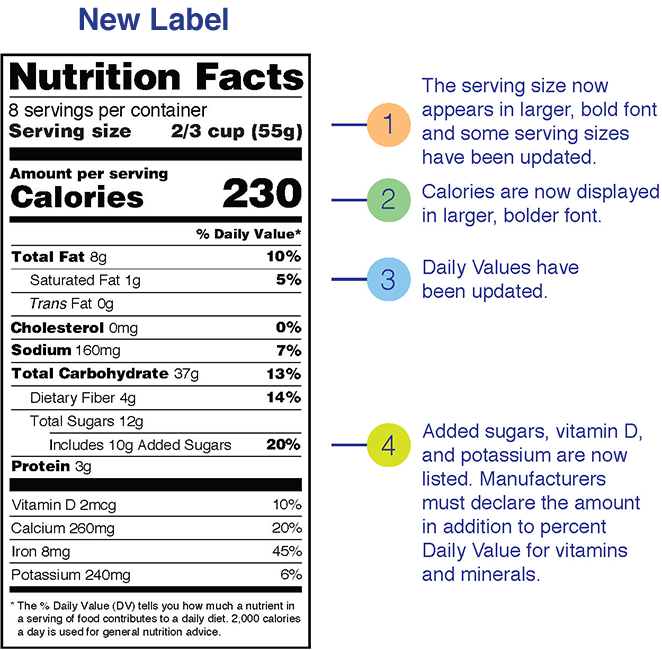


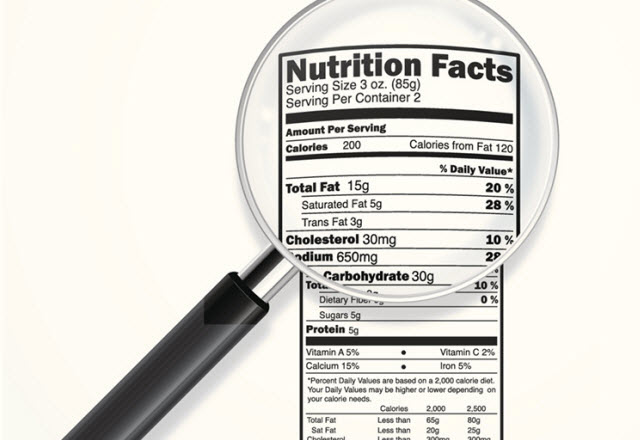
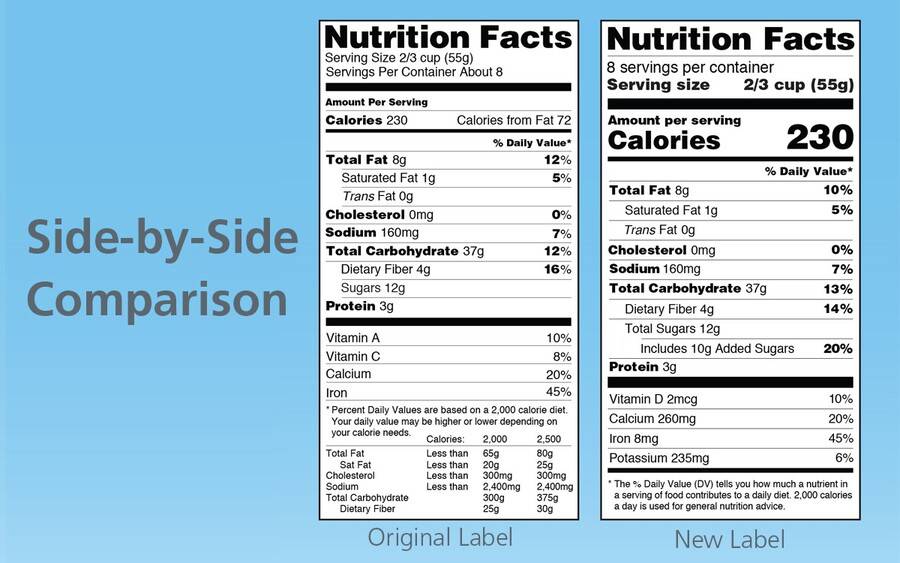
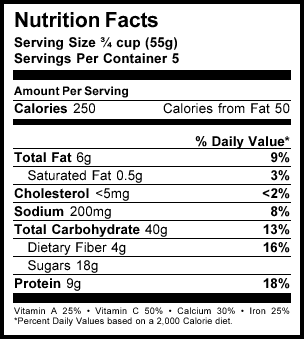

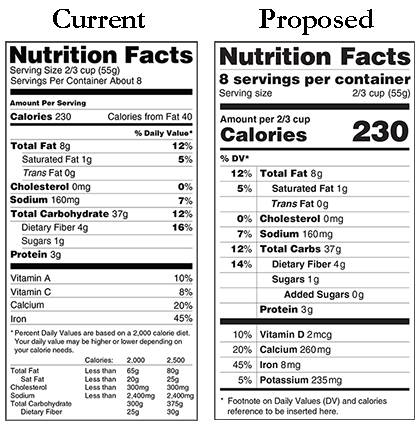

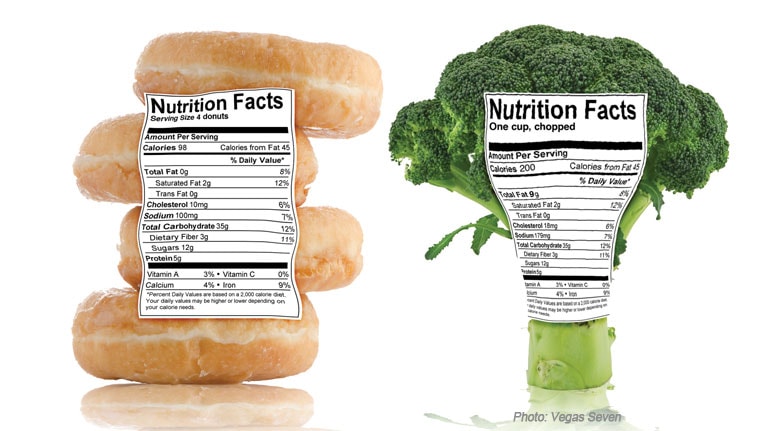
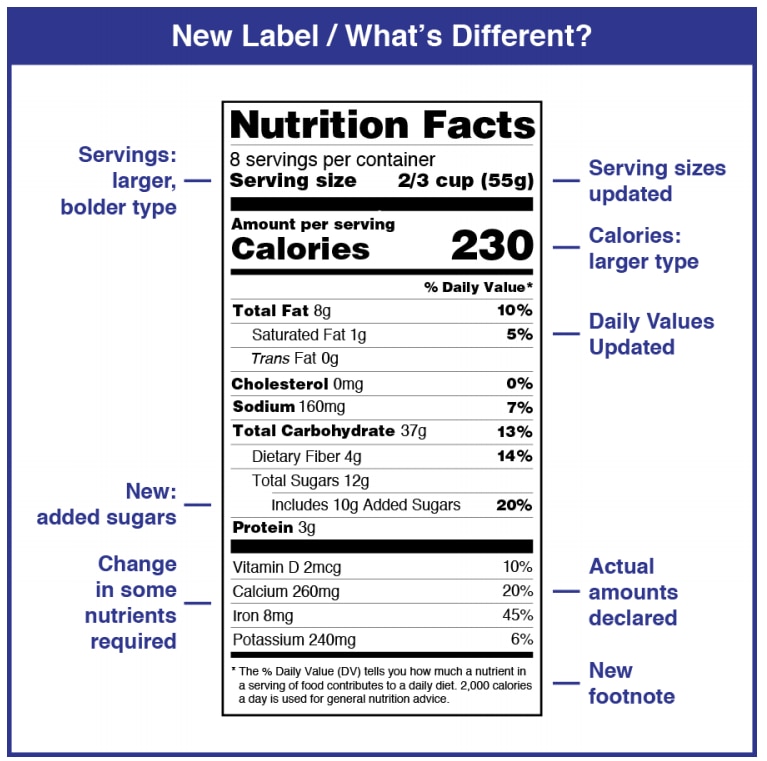
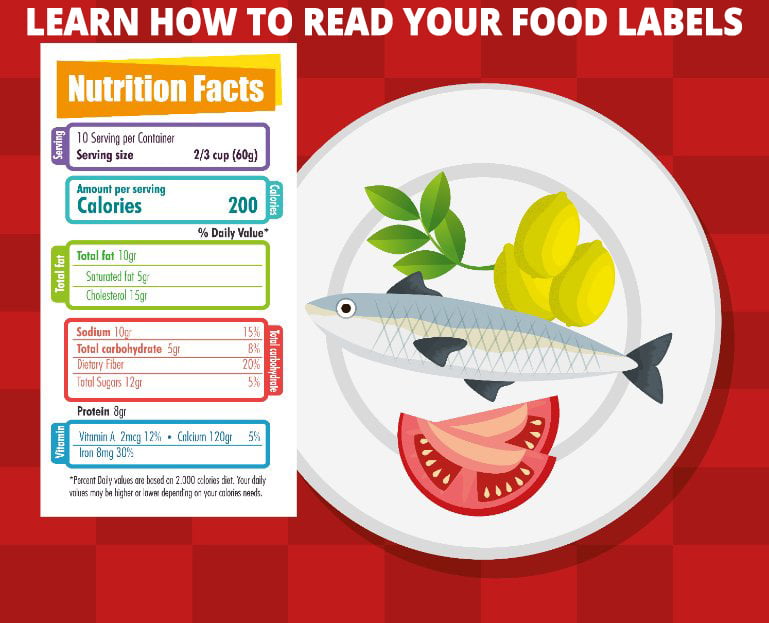

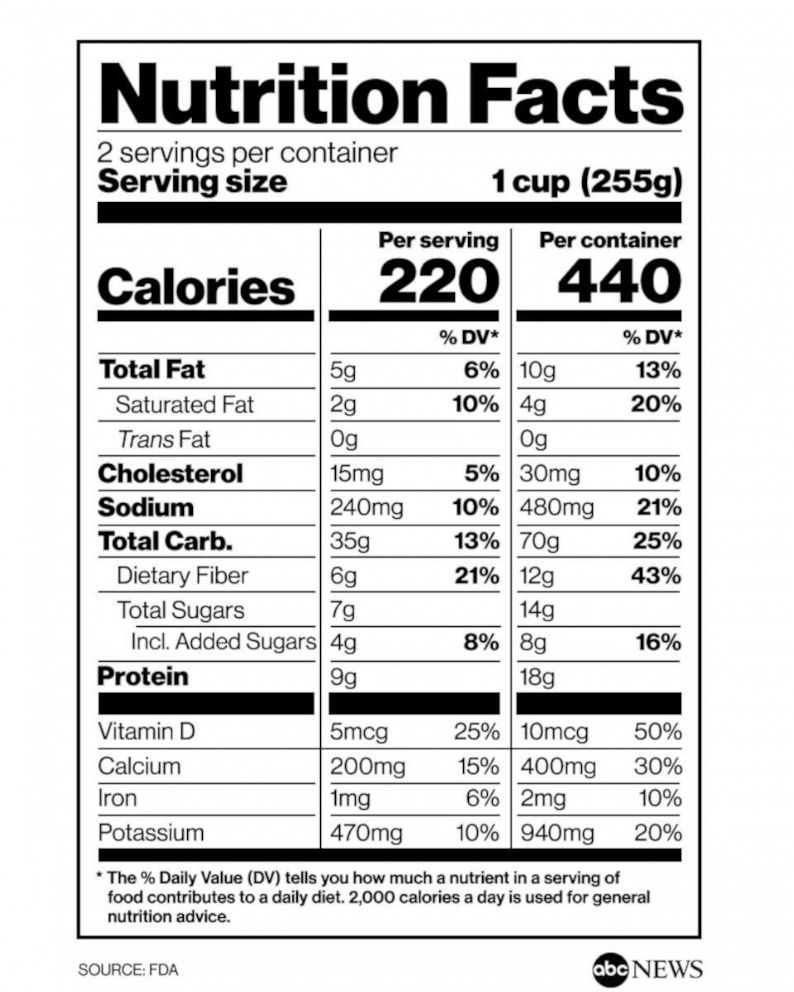
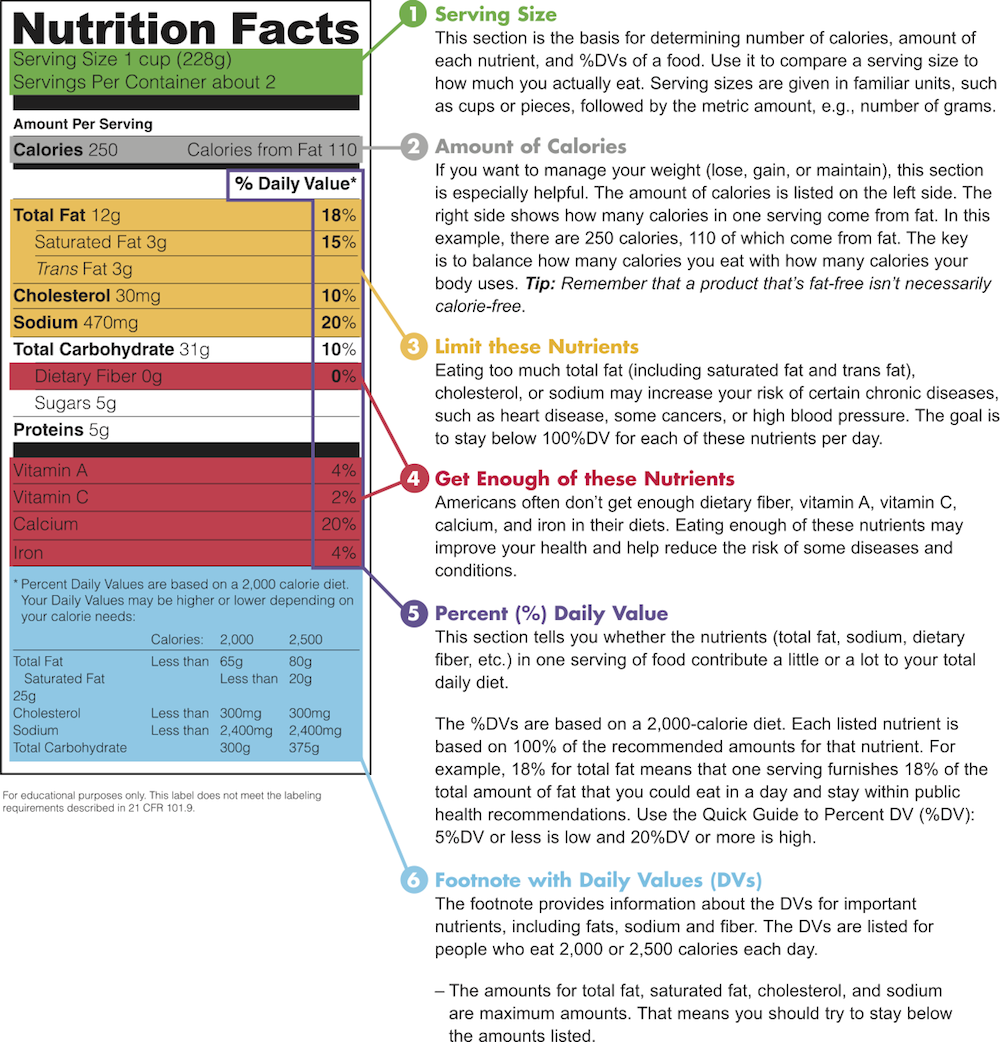
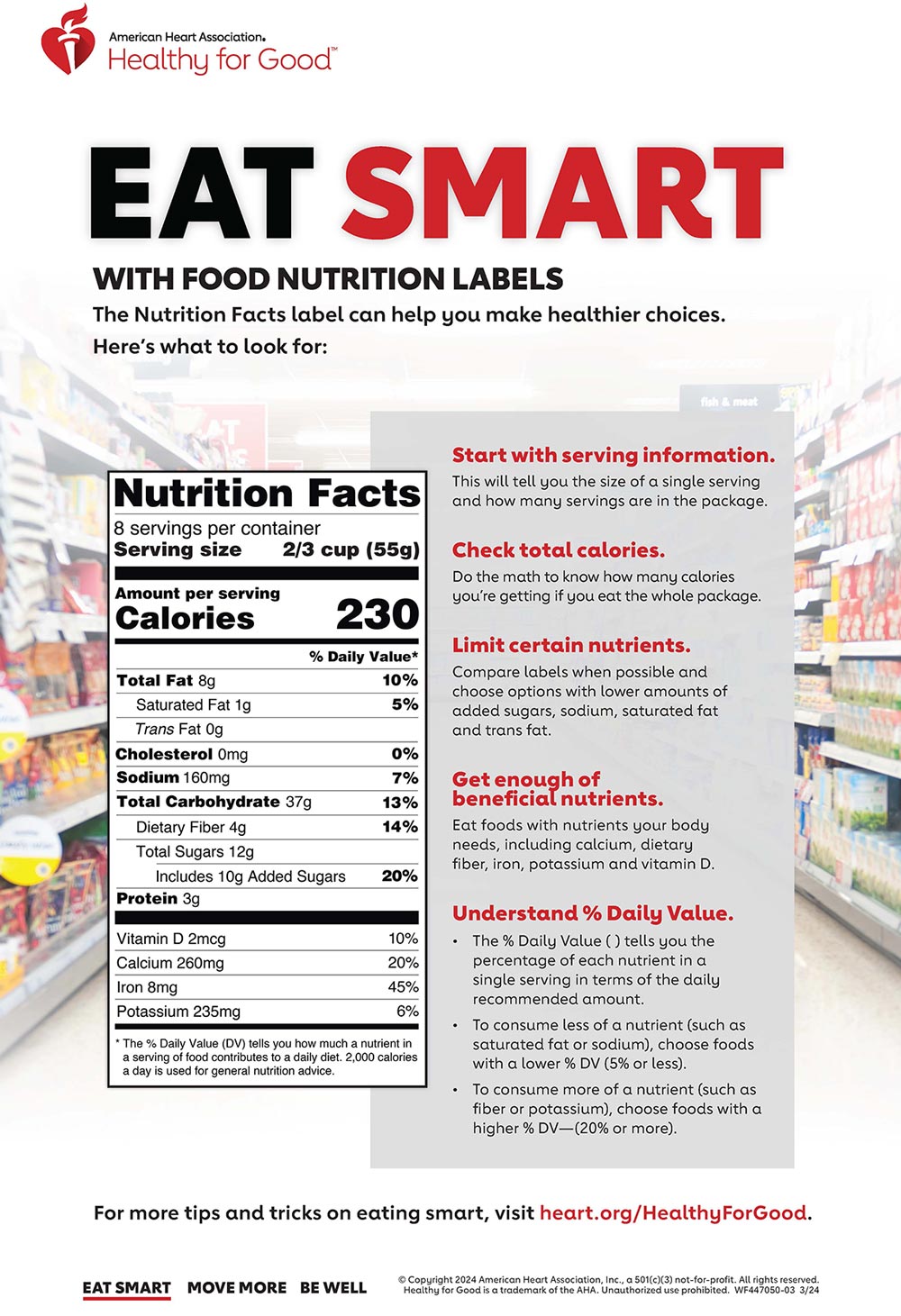

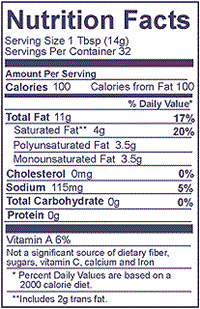
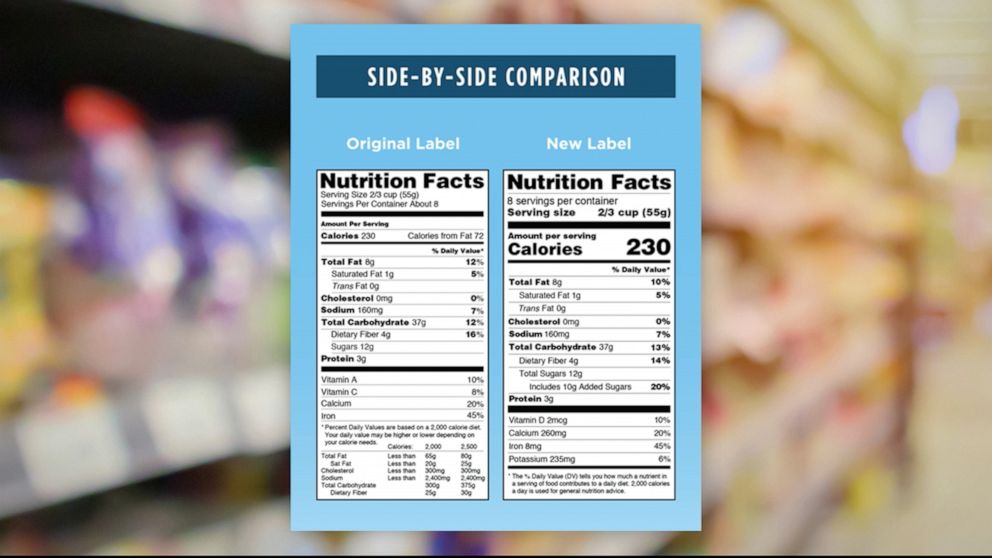


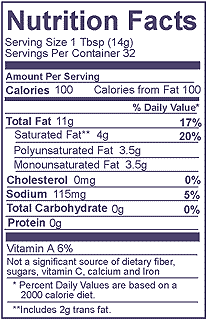
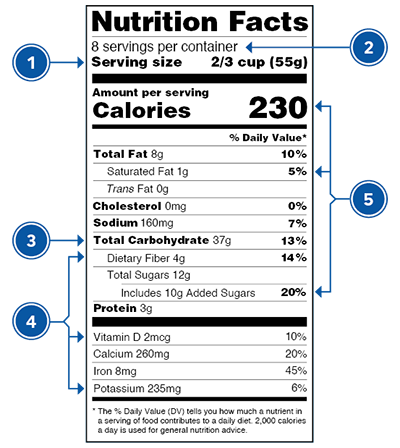
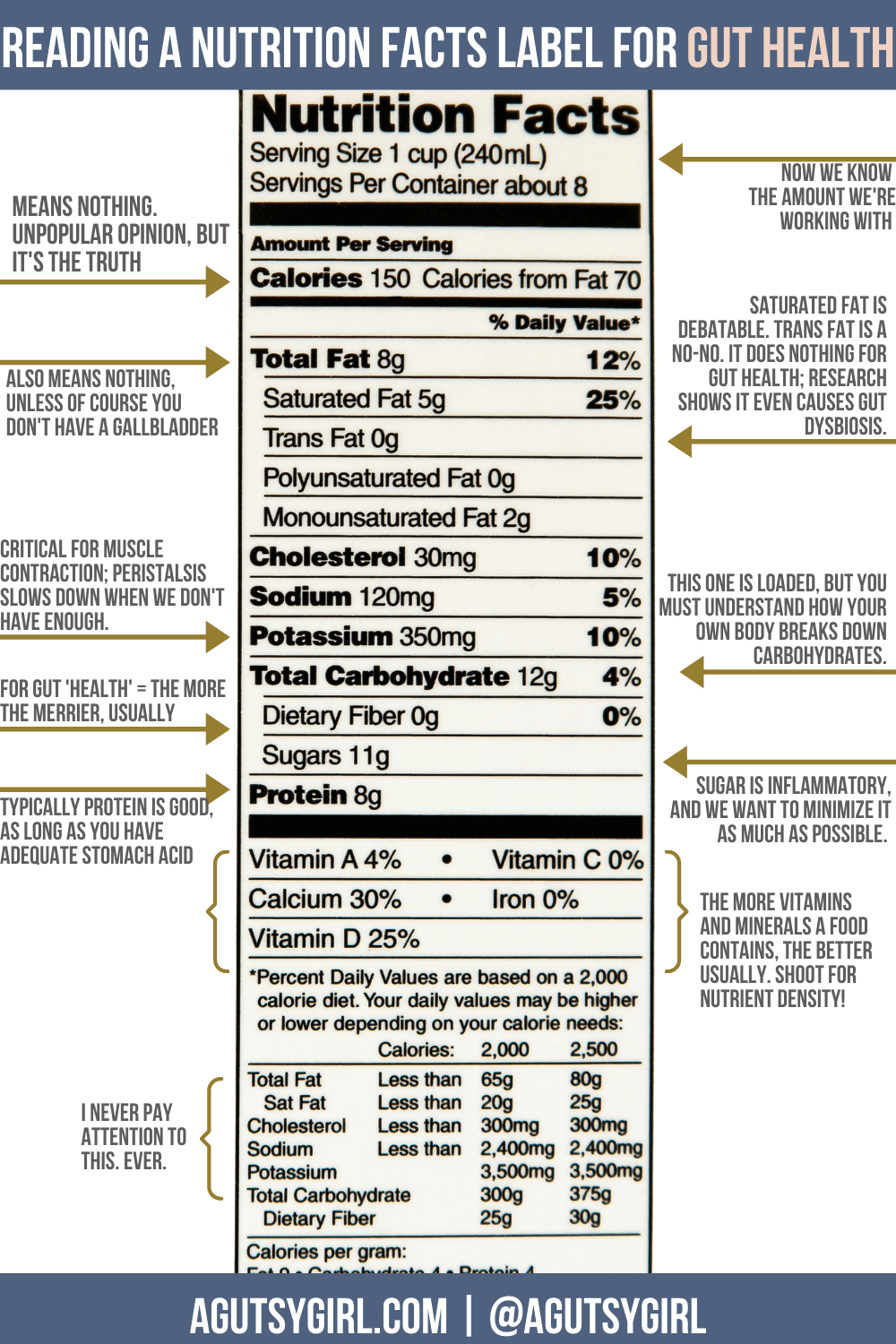



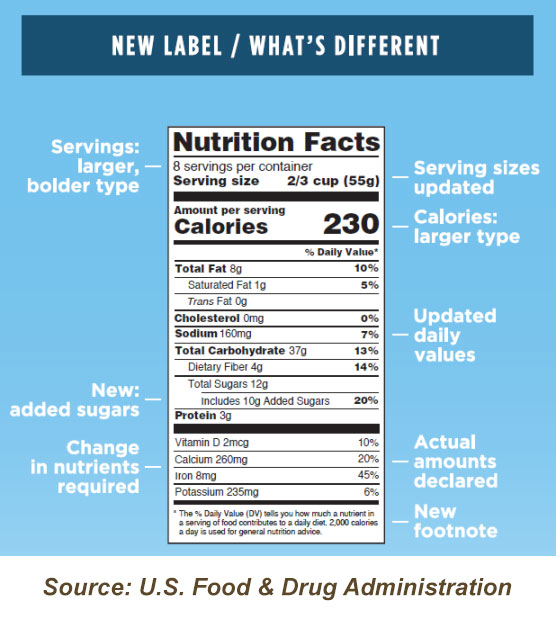

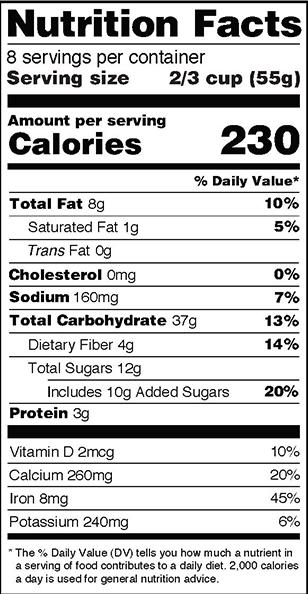

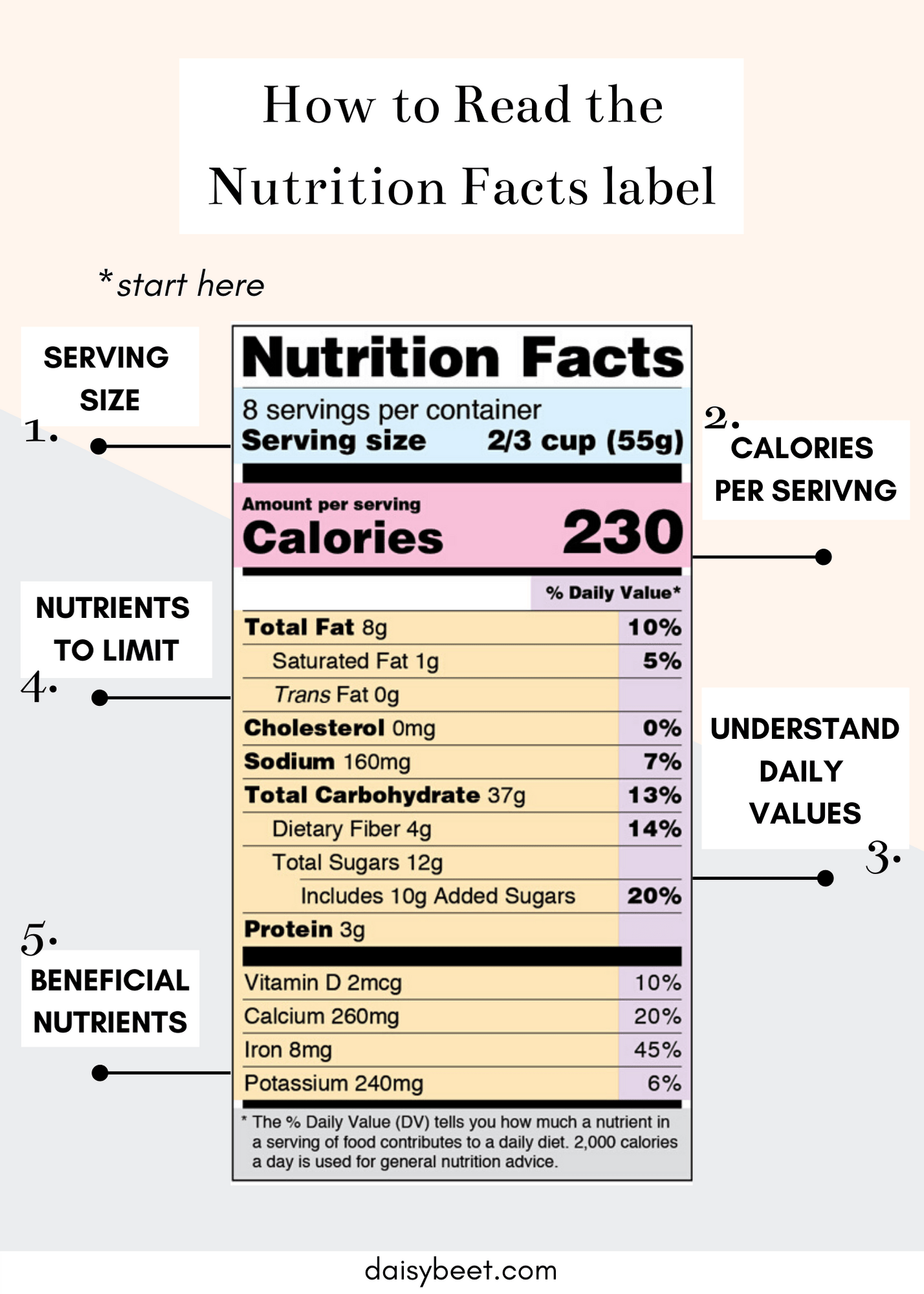

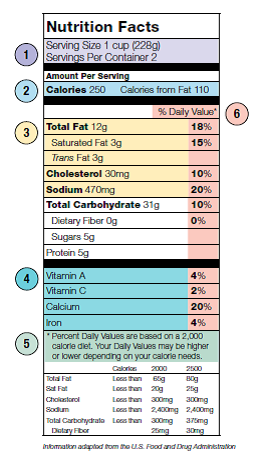

/187591470-56a6b5225f9b58b7d0e46388.jpg)
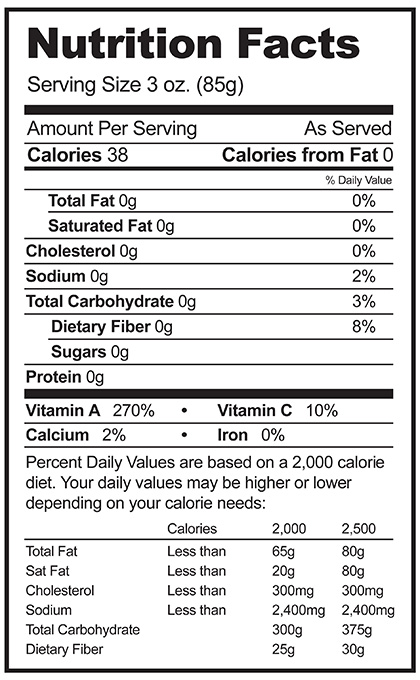


Post a Comment for "43 nutritional labels on food are based on a diet of"